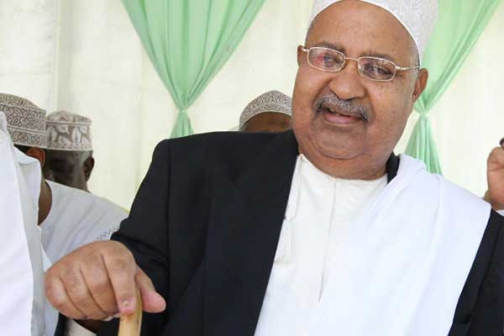×
The Standard e-Paper
Smart Minds Choose Us

They had the President’s ear. They had the money. They were so powerful that Cabinet ministers lined up at their private offices for support and blessings. Many trembled before them. They were businessmen, yet they wielded mighty influence on who got what politically at the Coast.
This group was epitomised by Tahir Sheikh Said (TSS), Rashid Sajjad Mohamed, Mohamed Bawazir and Mohamed Zubedi. So powerful were they that even regional political supremo and former Cabinet Minister Sharif Nassir did as they instructed.